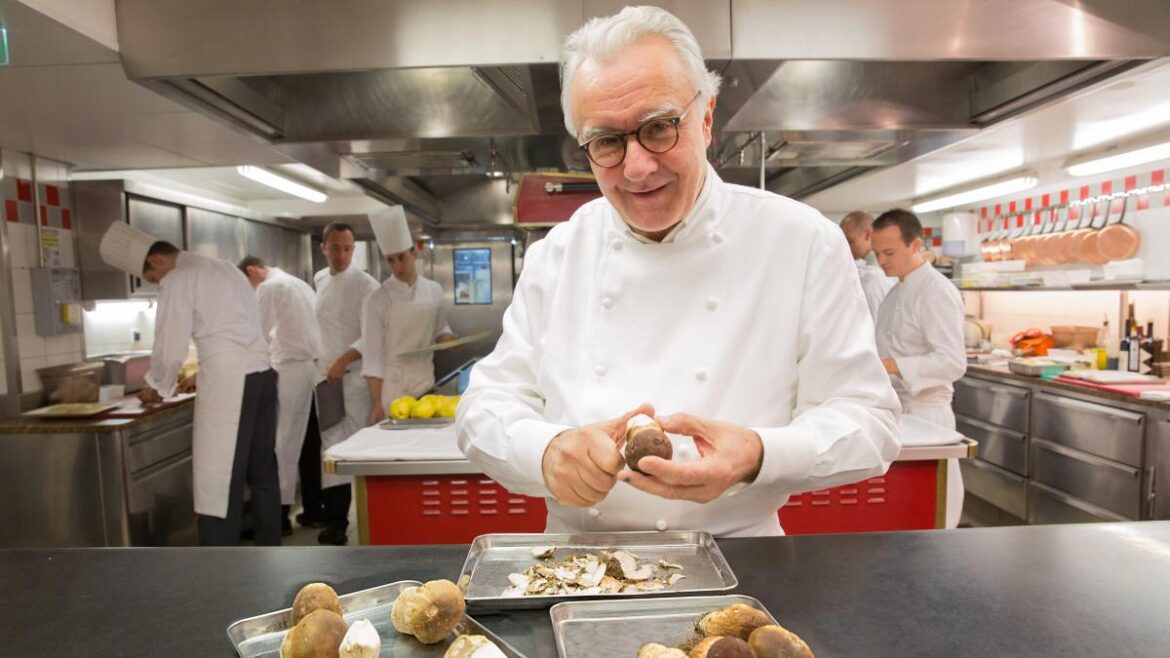The French have long fretted that their celebrated cuisine is being undermined by fast food and outclassed by Britain’s diverse dining scene.
In the latest attempt to rescue gastronomy, the government is making it compulsory for restaurants to label dishes they have bought in and reheated rather than cooking on the premises.
The practice of serving warmed-up factory-made food appears to be surprisingly widespread. Only 4 per cent of the country’s 175,000 restaurants serve dishes entirely cooked from scratch, according to Alain Fontaine, president of the Association of Master Restaurateurs, a title conferred by the government on those who uphold culinary traditions.
The vast majority of restaurants buy industrially produced ready meals or frozen food from specialist supermarkets where customers must show proof that they work in catering.
In 2014 the government introduced a “home-made” label aimed at highlighting dishes cooked in restaurant kitchens from fresh ingredients. It was seen as a way of rewarding chefs who avoided the temptation to save time and money by serving dishes that appear freshly made but are in fact ready meals.
The initiative failed because the label was voluntary and rarely used in practice. Inflation has exacerbated the problem as restaurants struggle to remain affordable.
Now, having tried the carrot approach, the government is trying the stick. From 2025 at the latest, restaurants will be compelled by law to label all dishes not cooked from scratch in their own kitchens, Olivia Grégoire, the trade minister, has announced.

Stéphane Manigold said the change to the law would be “a victory for consumers and artisans of taste”
NASSER BERZANE/ALAMY
The government has been working for months on a new way to reverse the decline in standards, she said. “It is impossible in the country of gastronomy not to clearly inform consumers,” Grégoire told La Tribune Dimanche. “It is also good for the morale of restaurateurs who take pains to offer their customers dishes cooked from scratch when increases in food prices and energy costs have not spared them.”
Stéphane Manigold, the owner of several Paris restaurants including Substance, Maison Rostang and Contraste, welcomed the planned change in the law as “a victory for consumers and artisans of taste, and a defeat for microwave cooks and tourist traps”.
It is unclear if the new rule will be introduced in time for next summer’s Paris Olympics, when the government wants to showcase French culture, cuisine and architecture.
Anxiety that London and other world cities are beating Paris in the battle for culinary supremacy has been building for years.
In 2012, Joël Robuchon, the French chef who won more than 30 Michelin stars and died in 2018, astounded foodies by declaring: “London is very possibly the gastronomic capital of the world. Why? Because it’s only in London that you find every conceivable style of cooking. When it comes to what’s new in cooking, to innovative cuisine, it’s all happening in London.”
Alain Ducasse, who has more than 60 restaurants in seven countries under his name, including Alain Ducasse at the Dorchester in London, recently said: “London is the city of the world. It’s about cultural diversity in gastronomy. You can eat so many cuisines at the top level.”

